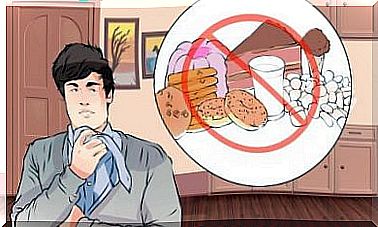Saying ‘no’ Doesn’t Make You A Bad Parent

How can we be a good parent ? A question that undoubtedly comes to your mind often. Of course you do your best for your children every day.
- Put tasty meals on the table.
- They learn to walk and read.
- Find nice things for them.
- They help chase their dreams.
- Also comfort your children during nightmares.
- Your children learn trial and error.
So how can you be sure that every decision you make is the right one? While raising your kids, it’s not realistic to try to be the perfect mom or dad all the time.
In fact, our goal may be much simpler than chasing perfection: to try to be present at every stage of their young lives. They support them on their path to adulthood, they learn to make independent decisions and of course they help them to find happiness and satisfaction in everything they undertake.
However, this does not mean at all that you should allow them everything their hearts desire. It means that she gives you what they need at a certain time and during a certain stage.
Then you will of course find that saying ‘no’ will be necessary on a regular basis and that you will have to set boundaries and limits to what your little rascal or unruly teenager has in mind. Remember, though, that under any of these circumstances saying “no” doesn’t make you a bad parent.
Let’s take a closer look below when saying no may be necessary.
1. Don’t pay attention to a tantrum or nasty mood
Your child reaches the age when it discovers that he or she can ask anything from mom or dad. Your sweetheart wants to play with your cell phone, a second dessert after dinner, the same toy as the boy next door… and you say ‘no’. Now let’s try it out if getting angry helps or if a rage outburst with screaming and yelling can bring the solution…
Don’t think you’re a bad mother if you choose to ignore this behavior. This is the best attitude you can take towards this behavior.
Giving in to a tantrum will only make you reward the unwanted behavior and that the same strategy will be used again in the future to get everything your heart desires.
Always ignore a tantrum, no matter how intense it is. They are of no use at all. Your child will only learn how to blackmail you, something you should not allow under any circumstances.
2. Let them do simple tasks themselves

Teach your children to do small, simple tasks on their own from an early age. In this way, they will become independent young adults who will be able to make decisions and take care of themselves.
Doing everything yourself quickly because it is sometimes more convenient will not yield nice results in the long run.
Saying “no” to tying shoelaces or quickly solving those math problems doesn’t make you a bad parent at all. On the contrary, it will teach your offspring to take responsibility for themselves. The first reaction will often be shock and an attempt to convince you that they can’t do this at all or that it is too difficult.
Now it’s important to bite through and show them that they are smart and handy enough to solve small tasks and chores on their own.
Rest assured that everything will be okay, even if the beds are not made for a while or a mistake has crept into the homework. You will see that they will try harder the next time and that over time your child will enjoy taking on a number of tasks independently during the day without any help from mom or dad.
3. Saying “No” Doesn’t Make You a Bad Parent
Child psychologists discovered that the urge for independence in children starts around the age of eight. Not everything mom or dad say is taken for granted and gradually your child starts to question your attitude and ideas. The child begins to understand and explore the concepts of respect, justice, and morality.
At this age, your adapted response is especially important. Your children now especially need your love, support and daily guidance.
You may now discover that you will say “no” to your child more often than you like, but that doesn’t mean you are a bad parent. You attach importance to setting boundaries and teaching them what can and cannot be done and what is expected of them.
Be consistent. If you implement the rule today: don’t surf until school assignments are done, make sure you stick to this rule every day. If you allow tomorrow what was forbidden today, your children will never learn what is expected of them.
Don’t be afraid to say “no,” but take the time to explain why you’re banning something. Your children will struggle for a while, but afterwards they will probably understand why certain things are not possible. Plenty of examples:
- “You can’t play outside until the homework is done.”
- “You are too young to play in the street alone at night.”
- “You don’t get dessert until dinner is over”.
4. You are not a bad parent if you are not present every moment of the day

A horrible thought that every parent recognizes. Of course you would like to be with your children as often as possible, but a busy schedule at work, for example, does not always make it possible to pick them up to give them a homemade lunch at home.
It really doesn’t make you a bad mom if you can’t spend every second of the day with your child. The most important thing is the quality of the moments you spend together. During these times, surround your children with love and care.
When you are at home together, make them the absolute priority. Listen to what they have to say and take their concerns and questions seriously. Make every moment worthwhile.
It teaches your children that everyone is responsible for the family. The parents go to work and they go to school every day. Spending all day together doesn’t happen often, nor is it absolutely necessary to build a close bond with your offspring.
In this way, children learn to be independent, but also know that they can call on you at any time.









